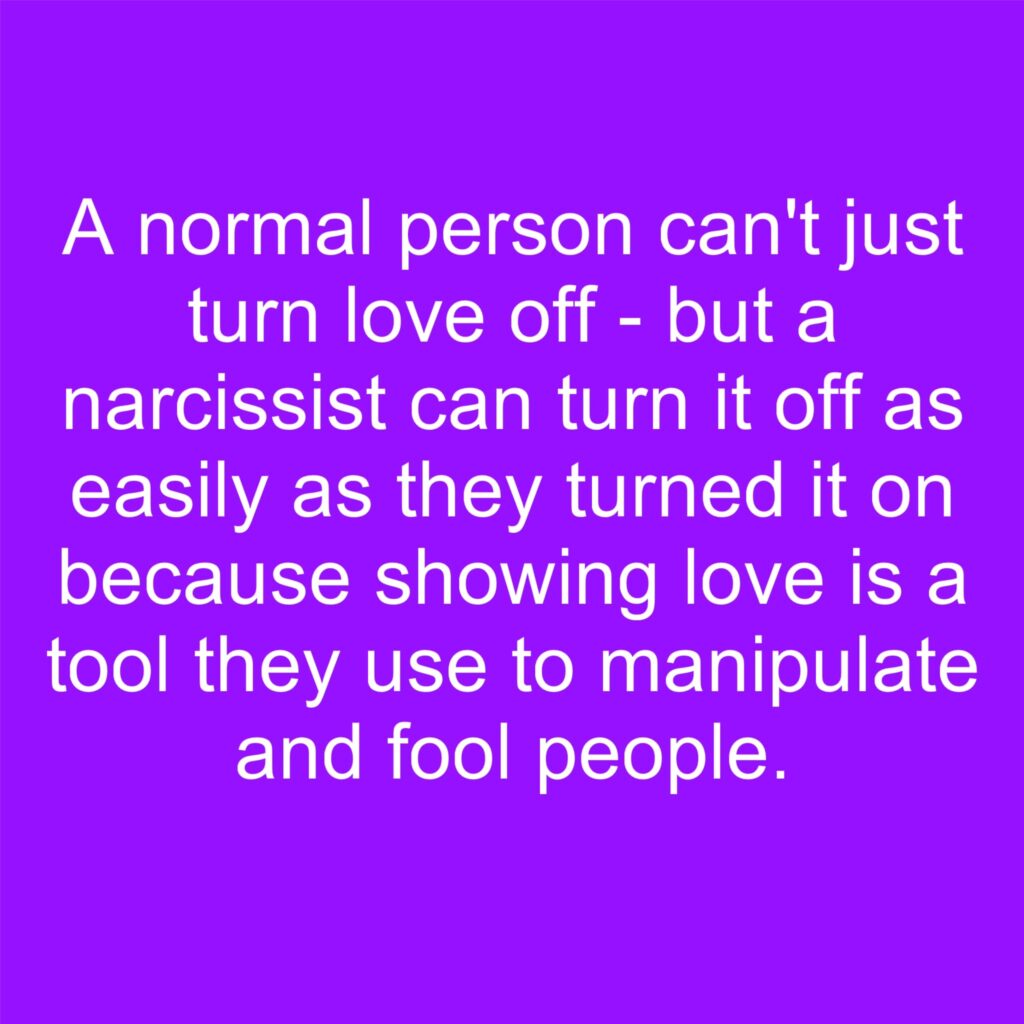Lately, many people have been throwing around the word “narcissist,” labelling anyone who displays any behaviour that could be perceived as selfish or unkind. This is confusing and invalidating to individuals who are in a relationship with someone who has Narcissistic Personality Disorder (NPD). We need to clarify the difference between a person with narcissistic behaviours and a person who could be diagnosed with the mental illness NPD.
Suppose someone conforms to the criteria for NPD and therefore qualifies for being called a narcissist. In that case, it means they meet the requirements listed in the Diagnostic and Statistical Manual of Mental Disorders, 5th edition (DSM-5). 1
It’s important to understand that there is a spectrum of narcissism that goes from healthy to unhealthy and includes thoughts, behaviours, and traits. Everyone is narcissistic to a point and needs to be to survive. There are healthy levels of narcissism that humans require. Some people have higher levels of narcissistic traits than others, but they still do not meet the criteria in the DSM-5 to be called a narcissist.
Interestingly, people who are not narcissistic enough or who have unhealthily low levels of narcissism frequently become involved with people with higher levels of narcissism than are standard; this is known by many as the intense attraction between empaths and narcissists.
We must keep in mind, however, that just because someone has narcissistic behaviours and traits does not necessarily mean they have NPD. Just like Obsessive Compulsive Disorder (OCD) has a list of requirements for the person to be formally diagnosed, it is the same with Narcissistic Personality Disorder (NPD).
Individuals who could be diagnosed with NPD typically exhibit two key traits: a lack of empathy for everyone, including those who are close to them, and a feeling of entitlement to exploit others emotionally or, in other words, they see people as tools to serve their interests rather than genuinely valuing and respecting them as individuals. These traits can be hard to spot initially because they are disguised. Narcissists may seem to care about people, but their concerns are often superficial, primarily driven by how the situation affects them. Their words usually contradict their actions. They rarely go out of their way to physically help others, and when they do, there will be strings attached, or they will use the rare favour they did for you as ‘proof’ that they care.
Narcissists frequently say things that hurt or upset people and stir up drama, but they act innocently as if they did not intend to cause harm or are entitled to say what they said. They tend to gossip and disregard the importance of keeping others’ personal information private. Additionally, they tend to feel more skilled, intelligent, or special in some way than others. They want to be in control of everything and believe others need them because of their higher intelligence or superiority. They cannot handle criticism, avoid taking any accountability in relationships, and always blame others for their problems.

How do we know the difference between someone who is displaying high narcissistic traits versus someone who could be clinically diagnosed with Narcissistic Personality Disorder? In the DSM-5 (APA 2013; pages 669-672), NPD is diagnostically defined as nine criteria, and at least five out of the nine must be present to meet the diagnosis.
Let’s examine these traits in more detail. For a person to be a narcissist, they must consistently meet at least five of the nine traits listed below, and not only once or twice; there must be a chronic and pervasive pattern of repeating behaviours.

NPD DSM-5-TR Criteria 1: Grandiose Sense of Self-Importance
This means the person believes they’re better or more important than others, often without proof to support it. For example, they might claim they’re the best at their job or have talents that no one else can match. A typical sign is when someone takes credit for things they didn’t do or inflates their accomplishments, such as claiming they single-handedly saved a project when it was a team effort. You might notice this behaviour when they consistently dominate conversations, especially about their “achievements,” even if those claims seem exaggerated or false.
To spot this, pay attention to whether their stories match reality. Do they always need others to recognize their “greatness,” even if they haven’t done much? For example, it’s a red flag if someone brags about being a top athlete but doesn’t seem to train or compete. They may also expect praise for very ordinary tasks or feel insulted when they don’t get the recognition they think they deserve.
NPD DSM-5-TR Criteria 2: Fantasies of Unlimited Success, Power, Brilliance, Beauty, or Ideal Love
This criterion involves a person daydreaming or believing their life should be perfect and grand. For instance, they might constantly talk about becoming a millionaire without taking any realistic steps toward it or describe their future as if they’re destined to be a world-changing genius. In relationships, they might imagine their partner as flawless or believe they’re meant for a “fairy tale” love story. When life doesn’t match these fantasies, they may act frustrated or blame others.
To recognize this, listen for patterns of extreme, almost delusional thinking. For example, they may discuss future fame or riches as inevitable, without a concrete plan to achieve them. They might also dismiss regular life events, like starting a new job, as too “ordinary” for someone like them. Watch for disappointment or anger when reality doesn’t live up to their idealized visions.

NPD DSM-5-TR Criteria 3: Belief in Being “Special”
This is when someone thinks they’re so extraordinary that only people of a certain “calibre” can understand or associate with them. They might refuse professional help unless they are the “best” or insist they belong in exclusive social circles. For instance, they might say things like, “No one at this company understands my vision,” or they only want to talk to the CEO because they believe everyone else is beneath them.
You can spot this by noticing how they treat “average” people. Do they dismiss others’ opinions or avoid interactions unless it benefits them? They may also constantly name-drop or flaunt connections with high-status individuals as if it proves their worth. It’s a sign that they must always feel like they’re part of something elite.
NPD DSM-5-TR Criteria 4: Requires Excessive Admiration
This trait is evident in individuals who crave constant attention and praise. It’s not just enjoying compliments—it’s needing them to feel good about themselves. For example, they might fish for compliments by saying, “I’m not sure if I did a good job,” when they want validation. They may sulk or become irritated if they don’t get this admiration.
To identify this, watch how they respond to feedback. Do they act overly excited when praised but defensive or dismissive when they aren’t? Another example is someone who regularly interrupts conversations to steer others back to their own achievements or insists on being the center of attention at gatherings.
NPD DSM-5-TR Criteria 5: Sense of Entitlement
This means the person expects special treatment just because they feel they deserve it. They may cut in line, demand perks others don’t get, or assume rules don’t apply to them. For instance, they might say, “I shouldn’t have to wait like everyone else,” or expect a favour without offering anything in return.
You’ll notice this if they act impatient or outraged when things don’t go their way. They might push boundaries, such as asking for last-minute accommodations or assuming others should prioritize their own needs. Look for patterns of unreasonable demands and a lack of awareness about fairness.

NPD DSM-5-TR Criteria 6: Interpersonally Exploitive
This behaviour involves using others as tools to achieve one’s own goals. For example, they might charm someone into doing them a favour and then disappear when they’re no longer helpful. They tend to see relationships as transactional, where people are there to serve their goals.
You can spot this when their actions seem calculated rather than genuine. For instance, they might be overly friendly at first, but their interest fades once they’ve gotten what they need. Pay attention to whether they seem to give as much as they take in relationships.
NPD DSM-5-TR Criteria 7: Lacks Empathy
This means the person struggles to understand or care about how others feel. For example, they might dismiss someone’s emotions by saying, “Why are you so upset about that?” or ignore someone’s needs because it’s inconvenient. They may consistently come across as cold or indifferent, especially in emotionally charged situations.
Look for signs in how they react to others’ struggles. Do they quickly change the subject or offer shallow, dismissive advice? For instance, when someone shares a personal hardship, they might respond with, “That’s life,” rather than showing genuine concern or support. Sometimes, they can act supportively and as if they genuinely care about you, but eventually, you will catch them slipping up and making flippant comments or insensitive remarks when you’ve shared something important to you.

NPD DSM-5-TR Criteria 8: Envious of Others and/or Believes Others Are Envious of Them
This trait involves feeling jealous of others’ success or assuming people are envious of them. For example, they might downplay someone’s accomplishments by saying, “They got lucky,” or claim that others are secretly trying to compete with them. They may also act resentful when others get attention or recognition.
To identify this, notice whether they seem unable to celebrate others’ successes. For instance, they might criticize someone’s new car or job promotion instead of being happy for them. Alternatively, they might frequently say things like, “People are just intimidated by me,” as if jealousy is the only reason others might criticize them.
NPD DSM-5-TR Criteria 9: Arrogant, Haughty Behaviours or Attitudes
This occurs when someone acts superior to others, often in a dismissive or condescending manner. They might talk down to people they think can’t benefit them, make sarcastic or inappropriate remarks, and try to bring the conversation back to themselves. They will also act arrogantly and as if they always know best with those who are close to them.
You can spot this trait by watching how they treat people they consider useless, such as people they think won’t help them in some way or those who they consider beneath them. Their arrogance often appears as nonstop talking or body language such as smirking, acting bored, interrupting, or only half-listening when others they consider less important speak.

Conclusion
It’s important to distinguish between someone who displays narcissistic traits and someone who appears to meet the criteria for Narcissistic Personality Disorder. While many people may occasionally exhibit behaviours like gossiping, having grandiose thoughts, or being envious of others, these incidents do not necessarily indicate they have a disorder. NPD involves a pervasive pattern of specific behaviours that significantly impact relationships, self-perception, and daily functioning throughout a person’s life.
By understanding the DSM-5 criteria and observing patterns rather than isolated events, we can develop a more accurate perspective, enabling us to distinguish between someone with high narcissistic traits versus someone who likely has Narcissistic Personality Disorder. Labelling someone a “narcissist” without considering the full context minimizes the experiences of people dealing with someone who could be diagnosed with NPD and also risks misjudging others.
Being aware of other people’s personalities is essential. We should be mindful of whether someone we have to interact with is potentially a narcissist so that we can protect ourselves. Some ways to safeguard your well-being are lowering your expectations of them, refraining from disclosing personal information or revealing as little as possible, not taking their criticisms personally, and not believing everything they say. Stay vigilant about manipulative behaviour and avoid becoming entangled in their gossip, drama, and arguments; instead, maintain a distance, remain neutral, and refrain from getting emotionally involved.
Many times, when we recognize that someone most likely suffers from NPD, it’s usually best if we graciously back away and don’t stay close to them. If the narcissist is your mother-in-law or someone who has to remain in your life, focus on having an almost business-like relationship; be polite, pleasant, and very surface-level.
Armed with knowledge, we can better navigate complex relationships, support those affected, and foster more informed conversations about mental health and personality disorders.
If you need help or techniques on how to deal with a narcissist in your life, book a Discovery Call here.


Footnotes



